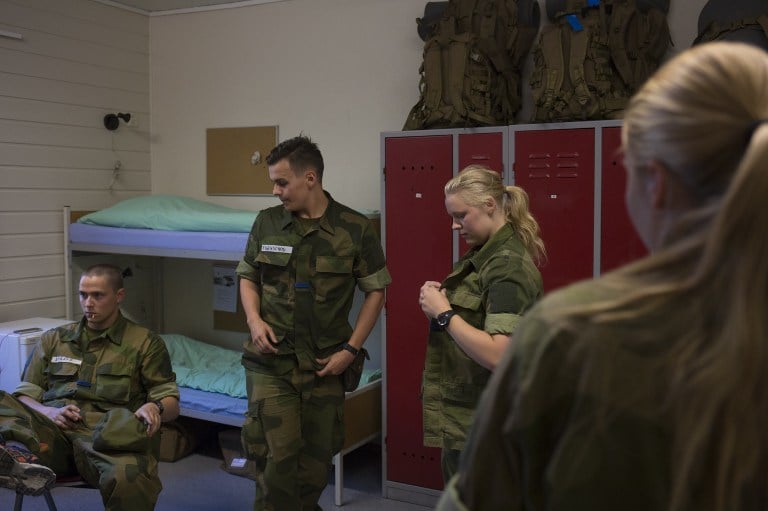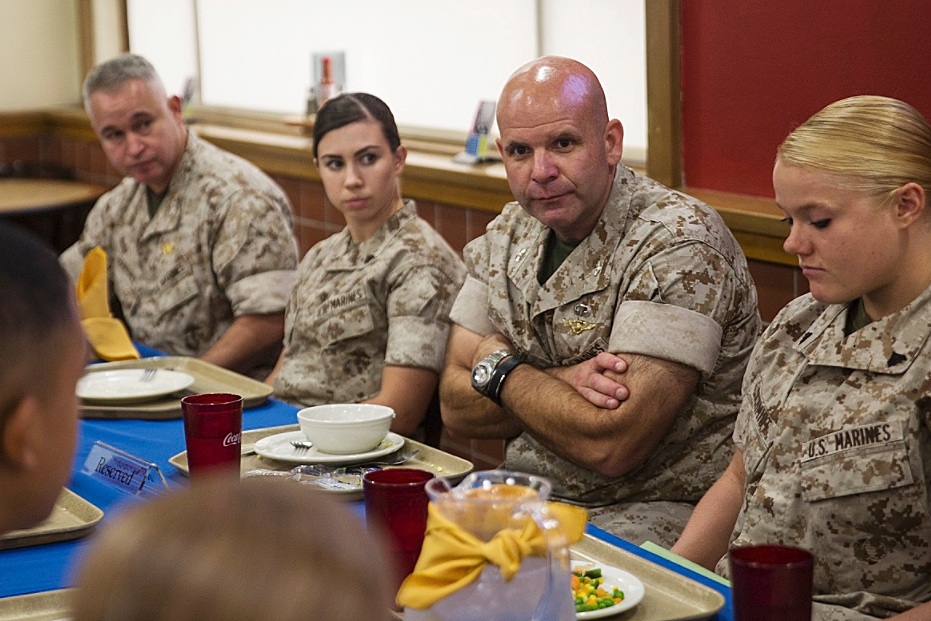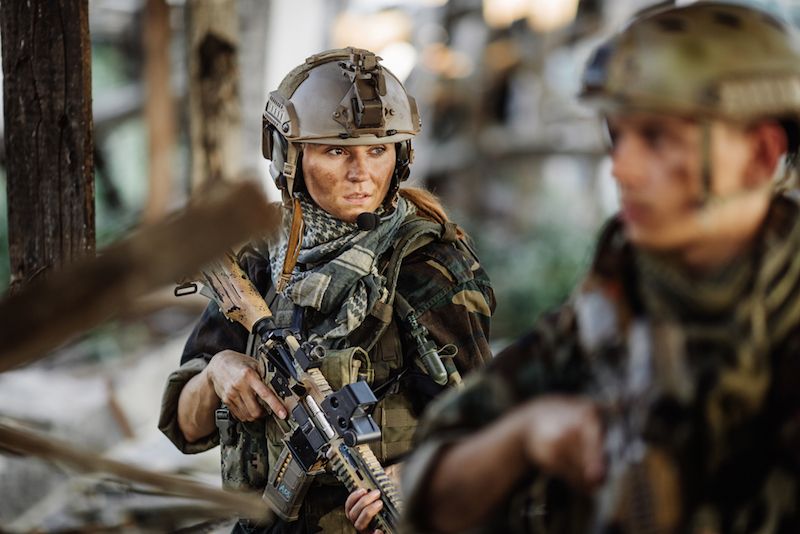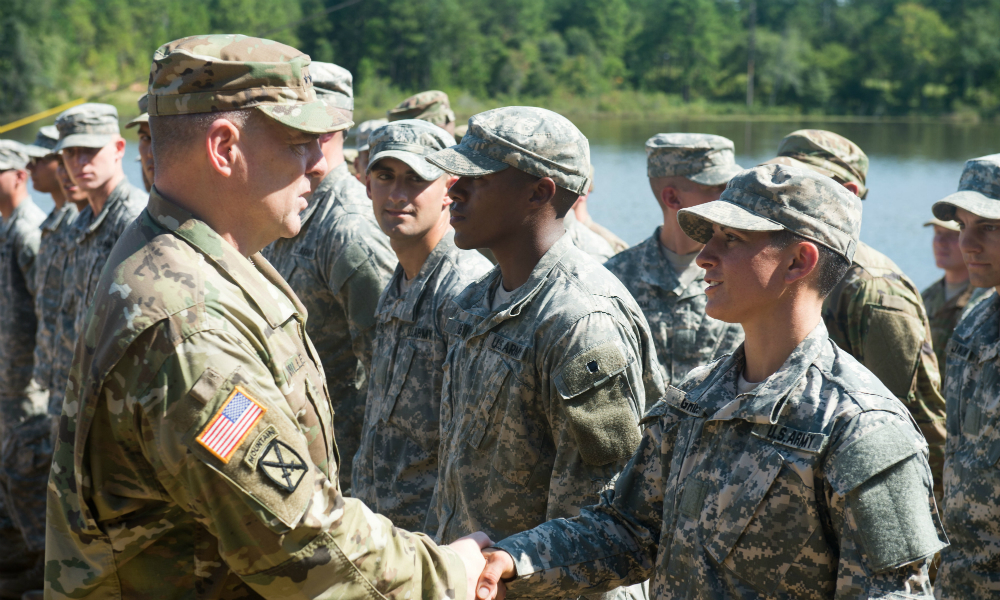Ever wondered how female soldiers keep up with the guys? Female Soldiers face unwanted Sexual attention, harassment, and even assault from male colleagues and superiors. Female and male soldiers working together, Women in the military challenges, Female soldiers in the military, women in combat units, military harassment prevention, military sexual assault statistics, Women military respect, How do female soldiers manage with Male Soldiers? | Female and male soldiers working together.
Introduction – Female and male soldiers working together

The military environment is a unique and challenging space where interpersonal relationships, including sexual dynamics, are shaped by strict regulations, high-stress conditions, and deeply ingrained cultural norms. How do female soldiers manage with Male Soldiers?
For female soldiers serving alongside male counterparts, managing sexual interactions in combat zones involves navigating complex challenges while adhering to military codes of conduct. This blog explores how female soldiers address these dynamics, the risks involved, and the measures taken to ensure professionalism and safety.
How do female soldiers manage with Male Soldiers?
Sexual relationships in the military are governed by strict rules designed to maintain discipline and unit cohesion. The Uniform Code of Military Justice (UCMJ) prohibits certain behaviors, including adultery and fraternization, which can undermine trust and morale within units. These regulations apply equally to men and women and are enforced to prevent favoritism, harassment, or other issues that could compromise mission effectiveness.
Despite these rules, sexual relationships do occur in combat zones. Female soldiers must balance their personal choices with the professional expectations of maintaining decorum in a male-dominated environment. Violations of these regulations can lead to disciplinary actions ranging from reprimands to court-martial proceedings.
Challenges Faced by Female Soldiers

Managing sexual dynamics among female and male soldiers in combat zones is a multifaceted issue influenced by cultural norms, regulations, and individual behavior. While challenges such as harassment, stigma, and health risks persist, ongoing efforts to improve education, reporting mechanisms, and leadership practices offer hope for creating safer environments for all service members.
By fostering mutual respect and professionalism within units, the military can ensure that its personnel remain focused on their mission while navigating interpersonal relationships responsibly.
Female soldiers encounter several challenges related to sexual dynamics in combat situations:
Cultural Norms and Gender Dynamics
The military is often characterized by a culture rooted in masculinity, where women may face objectification or belittlement. This can create an environment in which female soldiers feel pressured to conform to traditional gender roles or face scrutiny for their behavior. Women’s professionalism is sometimes questioned, with their presence perceived as a distraction or threat to military effectiveness.
Risk of Sexual Harassment and Assault
One of the most significant risks female soldiers face in combat zones is sexual harassment or assault. Studies reveal that military sexual trauma (MST) remains prevalent despite efforts to curb it. Deployment dynamics—such as prolonged stress, isolation, and deprivation—can exacerbate these risks. Female soldiers often report low rates of MST due to stigma, fear of retaliation, or lack of confidentiality when reporting incidents.
Stigma Around Sexual Activity
Female soldiers may feel stigmatized for engaging in consensual sexual relationships or even requesting condoms due to perceptions of promiscuity. This stigma can discourage safe sex practices and lead to higher rates of sexually transmitted infections (STIs) among servicewomen compared to civilian women.
How do Female soldiers manage their Periods / Bathroom situations at War zones?
Strategies for Managing Soldiers’ Sexual Dynamics – Military harassment prevention
To navigate these challenges effectively, female soldiers adopt various strategies:
Adherence to Professional Boundaries
Most female soldiers prioritize professionalism by maintaining clear boundaries with male colleagues. This approach helps prevent misunderstandings or inappropriate behavior while fostering mutual respect within units.
Reporting Mechanisms for Harassment
The military has implemented systems for reporting sexual harassment and assault, although barriers such as stigma and lack of confidentiality persist. Strengthening these mechanisms is critical for ensuring that female soldiers feel safe and supported when addressing misconduct.
Education on Safe Practices
Female soldiers are increasingly educated about safe sex practices and the importance of using protection to prevent STIs. However, addressing the stigma around condom use remains an ongoing challenge.
Unit Cohesion and Leadership
Strong leadership plays a vital role in managing sexual dynamics within units. Leaders who foster inclusive environments can reduce instances of harassment while promoting trust among team members.
Risks Associated with Soldier’s Sexual Dynamics – Women in combat units

The consequences of unregulated sexual interactions in combat zones can be significant:
- Health Risks: Female soldiers are at higher risk for STIs due to inconsistent condom use and risky behaviors linked to alcohol consumption.
- Mental Health Impact: MST is associated with depression, PTSD, substance abuse, and difficulty readjusting post-deployment.
- Unit Cohesion: Fraternization or favoritism resulting from sexual relationships can erode trust and compromise mission success.
Efforts to Address Sexual Dynamics – Military Harassment Prevention

The military continues to take steps toward improving how sexual dynamics are managed:
- Prevention Programs: Initiatives aimed at preventing sexual violence focus on identifying patterns of behavior early and intervening before misconduct escalates.
- Policy Reforms: Updated policies emphasize stricter consequences for perpetrators of harassment or assault while promoting awareness about MST services.
- Cultural Shifts: Efforts are being made to challenge traditional masculine norms that contribute to gender inequality within the military environment.
Psychological Impacts of Military Sexual Trauma (MST)
MST has profound psychological effects on both male and female soldiers:
- PTSD and Depression: Survivors of MST are at higher risk for developing PTSD, depression, and anxiety. These conditions can persist long after the traumatic event and impact all areas of life.
- Anxiety Sensitivity: MST survivors often experience heightened anxiety sensitivity, which can exacerbate PTSD symptoms.
- Suicidal Ideation: There is an increased risk of suicidal ideation among MST survivors, particularly if they feel stigmatized or unsupported.
Addressing Psychological Impacts – Women military respect
To mitigate the psychological impacts of sexual relationships and MST in the military:
- Education and Awareness: Promoting awareness about the risks and consequences of MST can help reduce stigma and encourage reporting.
- Support Services: Providing accessible mental health services and support networks is crucial for helping survivors of MST recover and reintegrate into their roles.
- Policy Reforms: Strengthening policies against sexual harassment and assault, along with ensuring accountability for perpetrators, can help create safer environments for all service members.
The psychological impacts of sexual relationships between female and male soldiers are complex and multifaceted. While these relationships can offer emotional support, they also carry risks related to stigma, power dynamics, and MST. Addressing these challenges through education, support services, and policy reforms is essential for fostering a healthy and respectful military culture that prioritizes the well-being of all service members.
Conclusion
Romantic relationships between female and male soldiers in combat zones are shaped by a unique set of challenges and opportunities. By adhering to military regulations, maintaining open communication, and balancing personal connections with professional responsibilities, female soldiers can navigate these dynamics effectively. While such relationships require careful management to avoid risks like distraction or stigma, they also offer emotional support that enhances resilience during deployments. Ultimately, fostering mutual respect and professionalism ensures that both personal bonds and mission success remain intact.

